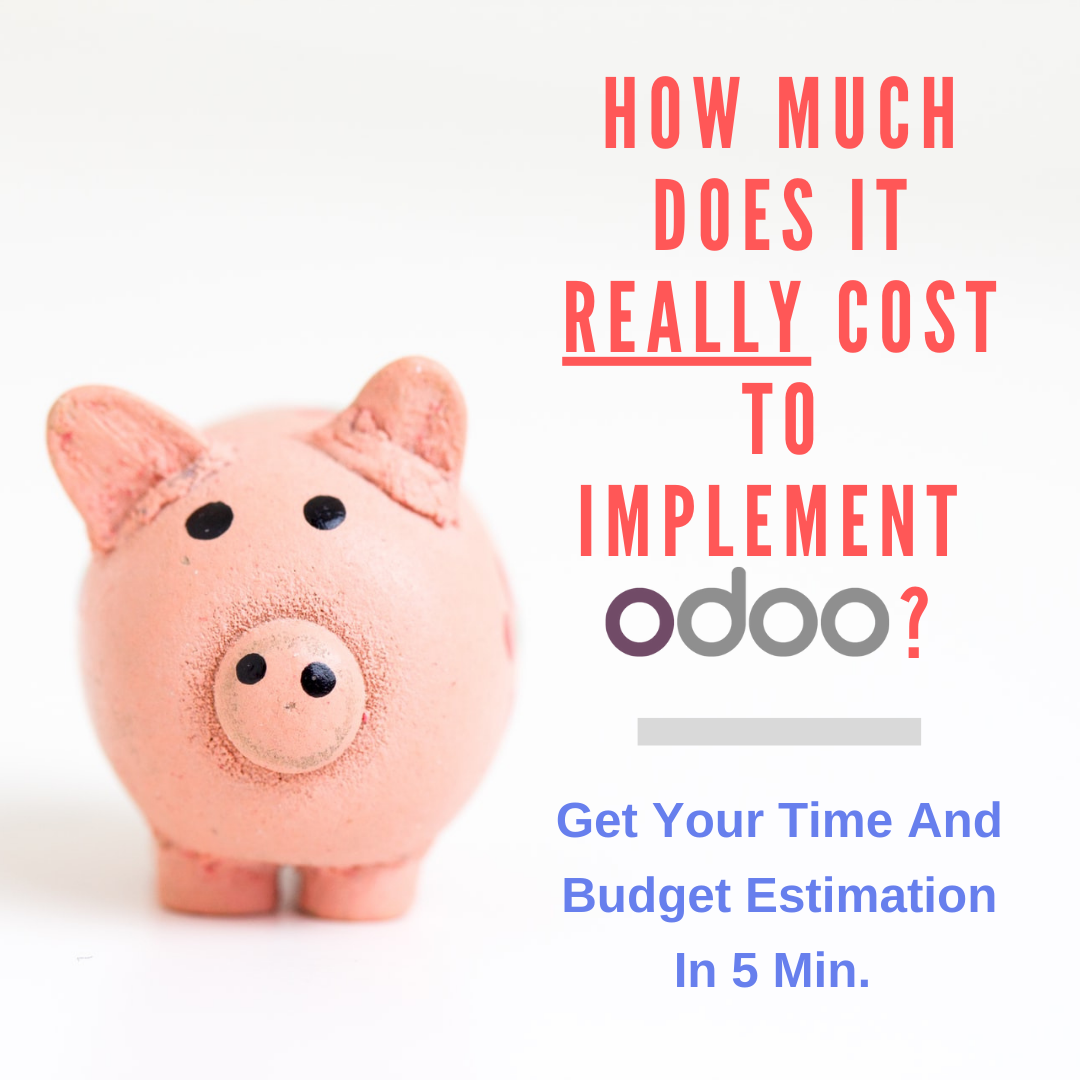Related Articles
Odoo is one of the most efficiently functioning ERP software systems, that helps manage all operations in an organization, such as:
- Customer Relationship Management
- Invoicing
- Accounting
- Electronic Commerce
- Sales Management
- Production Management
- Inventory Management
- Human Resource Management
Odoo Enterprise And Community

Odoo is a software suite with over 15,000 ready-to-use modules to help you run and manage your business better.
As such, Odoo is a complete ERP solution suite that continually upgrades to a newer version with more advanced features and capabilities every year. Odoo 14 will be released this year, which is much faster than its earlier versions.
The Odoo system includes a well-structured module and is available in two versions. Odoo Community is open source, and accordingly available for free, with no license fees, but with limited functions. That being said, the Odoo Community has attractive features that can be capitalized on according to the needs of small businesses.
Whereas Odoo Enterprise is an Odoo Community with additional paid features that bring more functionality and thus more business value. In simple words, Odoo Enterprise integrates the Odoo Community along with some additional features and is paid, while the Community version is available for free.
With a newer version of Odoo i.e. Odoo 14, some new features have been added in both the Odoo Community version and the Enterprise version.
Next, we’ll take a look at some of the main differences between the Odoo 14 Community and Enterprise editions with a focus on Sales Management.
General Features
In the Community version, the user cannot perform certain functions, such as:
- Version updates
- Functional support
- Hosting, public or private cloud hosting
The Odoo 14 Enterprise release supports all the features mentioned above, has the best hosting option, unlimited bug fix warranty, and more.
Odoo Studio Access
With the studio module, you can easily set up your system in a few clicks. Now with Odoo 14, Enterprise users can take advantage of several features such as:
- report designer
- screen setting
- menu editor
- application creator
On the other hand, Odoo Community users do not have access to all of these features.
User Interface
When it comes to the user interface in the new versions, both Odoo 14 Community and the Enterprise version have added a lot of features. Odoo 14 Community Edition is available for desktop only, while Enterprise Edition is available for both desktop and mobile devices. This will make it easier to use the program when you are in a meeting or on the go.
Odoo Community and Enterprise Sales Management

Sales management is the main topic when it comes to ERP. And here Odoo did not let us down either. With Odoo 14 Community and Enterprise editions, the user gains access to the sales module and customer portal, but with the Enterprise edition, users gain access to some additional features such as subscriptions, digital products, help desk, VOIP integration, and more.
To help you understand the difference, below are the key data in the table:
| Feature | Enterprise | Community |
| Digital, subscription, and rental products | + | – |
| Relationship Management (CRM) | + | + |
| Document Management | + | – |
| Electronic signatures | + | – |
| Support | + | – |
| Repair services | + | – |
| Field services | + | – |
| Commercial offers and orders | + | + |
| Customer Portal and Online Payments | + | + |
| Digital Phone Integration (VoIP) | + | – |
Odoo 14 Community version has a separate window that allows users to mark relevant sales. These tags are specified according to unique color settings and are used to manage individual sales.
Accounting
In Odoo 14 accounting module, localization settings allow for GST integration. In addition, you can enable the cash register check option in the settings menu, and a set of thresholds are available in the invoices to control the company’s operations in the fiscal year.
Some of the accounting features are available in the Community edition as well as in the Enterprise edition i.e. billing, and payments.
Project management features such as Projects and Tasks, Schedules, and Task Logs are available in both versions, with the exception of planning and forecasting.
Ecommerce features are mostly available in Enterprise, with the exception of the online store and shopping cart available in both versions.
In the Enterprise version of Odoo 14, the accounting module supports a wide range of useful and dynamic report sections such as balance sheet, profit and loss, resume, tax report, overdue accounts receivable, overdue accounts payable, and others, as well as some additional functions such as sales receipt, purchase receipt, Intrastat and invoice digitization. But all these features are not supported for the Community version.
Toolbar and Map View
Odoo 14 added some new views to the Enterprise version such as dashboard and map view in specific modules such as CRM, inventory, sales, as well as a new cohort. It gives end users a clearer understanding of the activities taking place in the organization. But when we look into the Community Edition, we only have limited views like List, Kanban, Calendar, and Bar Chart.
Inventory And Production Management
With the release of Odoo 14, Enterprise users gain access to some additional modules and features in inventory management such as shipping connectors (FedEx, UPS, USPS, etc.) and a barcode scanner. But you don’t get these features in the Community version.
Both the Community and Enterprise versions support MRP functions such as work centers, specifications, etc. But the Odoo Enterprise version supports additional functions such as PLM, MPS, Quality, but we do not have these additional functions in the Community version.
Document Management System and the Internet of Things
Odoo 14 adds an add-on module to the Enterprise feature for document management, with which you can share documents publicly, upload and download documents, but this function is not available in the Odoo 14.0 Community Edition.
Another ability of the Odoo 14.0 Enterprise version is to connect IoT devices to Odoo. This feature is not available in Odoo Community version 14.
In Conclusion
With the new version of Odoo, version 14, this ERP has become a complete management tool that has been enhanced and optimized to reflect current trends. This year, as always, Odoo supports its users by constantly sending them updates to make their business plan more efficient and reliable.
With the release of Odoo 14, Odoo has unveiled the possibilities of seamless integration into its ERP system. As discussed above, there are different operational aspects of the Community version and the Enterprise version.
The Enterprise edition has more advanced features and they depend on the applications that are being chosen. In addition, there are some features available in the Enterprise version of Odoo 13 that can be handled in the Community version of the new update.
There are some distinctive features between Odoo Enterprise and Community Edition, which are obvious because Odoo Enterprise is paid and Community is free.
The Odoo Enterprise version has unlimited functional support, updates, and public or private cloud hosting, whereas these capabilities are not available in the community version.
The Odoo Enterprise version supports Odoo Studio features such as screen customization, report designer, menu editor, and app builder, whereas the community version lacks these features.
With the Odoo 14 Community and Enterprise editions, the user gains access to the sales module and customer portal. That being said, with the Enterprise edition, users gain access to some additional useful features such as VOIP integration, subscriptions and digital products, customer support, and more.




